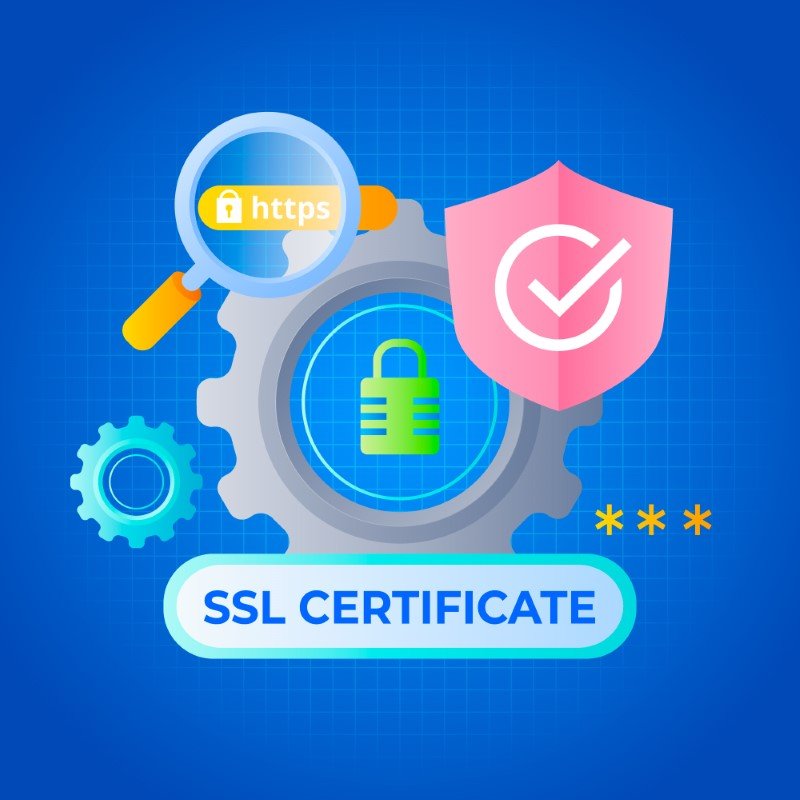Are you a local business aiming to draw more customers in your vicinity? Embracing local SEO can be your pivotal move. It’s a potent strategy that elevates your business’s visibility in local search results, positioning you ahead of competitors and grabbing the attention of potential customers seeking services nearby. Understanding what is local SEO and implementing SEO for local business can transform your local business SEO strategy.[1] [2]
Local SEO enhances your online footprint—website, business listings, and content—to ascend in location-based searches on Google and other search engines. With over 46% of Google searches being local, adopting local SEO basics like crafting a Google Business Profile, optimizing for Google Maps listings, conducting local keyword research, and analyzing competitors can propel your business to local prominence and visibility, essential for thriving in today’s market.[2] [4]Dive into this guide for beginner-friendly local SEO tips, tools, and strategies designed to help you outshine competitors and dominate local searches. Whether you’re new to this or seeking to refine your approach, these local SEO solutions offer a solid foundation.

Table of Contents
Understanding Local SEO
Definition and Importance of Local SEO
Local SEO, or Local Search Engine Optimization, focuses on enhancing your online presence to boost visibility in local search results. Exploring what is local SEO and integrating seo local practices can significantly impact your localized seo efforts.[5] [6]When individuals search for a product or service in a specific area, your business should stand out in those search results. Employing local SEO strategies, such as optimizing your website, managing online business listings, and encouraging customer reviews, are foundational local SEO basics that lead to effective local seo solutions.[5]
Local SEO connects you with a highly targeted audience—people nearby actively searching for the products or services you provide. Understanding the local seo benefits and the local seo importance can significantly influence your marketing strategy.[5]Leveraging local search advertising is a powerful way to enhance your visibility among local customers. This form of local SEO advertising is key to attracting more foot traffic and online inquiries from your local area.[5]With 81% of consumers turning to Google to evaluate local businesses, optimizing your local online presence is crucial for engaging with potential customers in your area. This statistic underscores the significance of local seo statistics in shaping your digital marketing strategy.[6]
How Local Search Works
When you perform a local search, search engines like Google consider factors like:
- Distance: How close is the business to the user’s location?
- Relevance: How well does the business match the search query?
- Prominence: How well-known and reputable is the business? [9]
Google assesses various factors to identify the most relevant local businesses for display in search results. These local SEO ranking factors are critical to understanding how to position your business effectively in local searches.
Types of Local Search Results
There are three main types of local search results you should be aware of:
- Local Pack/3-Pack: The Local Pack features a trio of local business listings at the pinnacle of search results for pertinent local queries. Achieving a spot in the Local Pack can lead to a 126% surge in traffic and a 93% increase in actions (calls, website clicks, directions) compared to businesses ranked 4-10, highlighting the impact of local seo rankings on your business’s online visibility.[9]
- Local Finder: An expanded list of local businesses, typically at least 20 results, that appears when users click on the map or “more places” in the Local Pack.[9]
- Local Organic Results: The regular organic search results that appear below the Local Pack and ads, ranked based on relevance to the local search query.[9]
Your multi-location business must optimize for local SEO rankings to increase chances of ranking well in all three types of local search results.[9]
Optimizing Your Local Online Presence
Claiming and Optimizing Google Business Profile
To improve your local ranking, you must claim and optimize your Google Business Profile. This free listing, crucial for google local SEO and local SEO optimization, acts as your business’s identity on Google, influencing how it appears in local search results across Google products like Maps and Search.[11]
- Claim and Verify: Claim your business on Google Business Profile and verify your locations to increase the chances of showing up in local searches. Google will guide you through the verification process, an essential step in your local SEO checklist.[11]
- Update Business Information: Provide complete and accurate details about your business, including name, address, phone number, website, business hours, and category. This local SEO optimization strategy helps Google better understand your business and match it to relevant local searches.[11] [13]
- Add Photos and Videos: Showcase your products, services, and business environment by adding high-quality photos and short videos (under 30 seconds) to your profile. Visuals can attract potential customers and give them a better idea of what to expect.[11]
- Manage Reviews: Respond to customer reviews promptly, whether positive or negative. This demonstrates your commitment to customer satisfaction and can improve your visibility and chances of attracting new customers, a key aspect of local SEO reviews.[11] [16]
- Post Updates: Use the “Posts” feature to share offers, events, or updates about your business. These posts can appear in local search results, helping you engage with potential customers.[12]
Ensuring NAP Consistency and Citations
Consistency in your business’s Name, Address, and Phone number (NAP) across online directories and citations is crucial for local SEO success, highlighting the importance of local SEO citations.[13] [14]
- Audit NAP Information: Conduct a thorough local SEO audit of your NAP information across your website, Google Business Profile, online directories, and other listings. Identify and rectify any inconsistencies to ensure accuracy.[13]
- Prioritize High-Impact Directories: Focus your efforts on major directories like Google My Business, Bing Places, and Yelp, as these have a significant impact on your local visibility.[14]
- Implement Schema Markup: Integrate local schema markup into your website’s code, prioritizing NAP details. This helps search engines better interpret and display your business information.[14]
- Eliminate Duplicate Listings: Search for and consolidate or delete any duplicate business listings, as these can dilute the integrity of your NAP information.[14]
- Foster Local Link Building: Collaborate with authoritative local websites and ensure NAP consistency when acquiring backlinks or mentions to boost your local SEO links.[14]
- Display NAP on Every Page: Include your NAP details, preferably in the footer, on every page of your website to reinforce consistency and accessibility.[14]
- Optimize for Mobile: Ensure your NAP information is easily readable and accessible on mobile devices, as mobile searches continue to rise.[14]
- Avoid NAP in Images: Display your NAP details in plain text, not within images, as search engines cannot interpret text within images.[14]
- Use E.164 Format for Phone Numbers: Adopt the E.164 international standard for phone numbers to ensure global consistency and compatibility.[14]
Managing Online Reviews and Ratings
Online reviews and ratings play a significant role in your local search visibility and can influence potential customers’ decisions, highlighting the importance of local SEO reviews.[16]
- Encourage Reviews: Actively encourage satisfied customers to leave local seo reviews on platforms like Google, Yelp, and industry-specific directories. Provide clear instructions and make the process straightforward.[16]
- Respond to Reviews: Respond to both positive and negative reviews promptly and professionally on local seo reviews platforms. This shows you value customer feedback and can help mitigate the impact of negative reviews.[16]
- Monitor Review Platforms: Regularly monitor review platforms for new reviews about your business with local seo monitoring tools. Set up alerts or use review management tools to stay informed.[16]
- Leverage Positive Reviews: Highlight positive reviews on your website and social media channels to showcase customer satisfaction and build trust.[16]
- Address Negative Reviews: Respond to negative reviews with empathy and offer solutions. This can turn dissatisfied customers into loyal ones and demonstrate your commitment to customer service.[16]
- Analyze Review Data: Analyze review data to identify areas for improvement, address common issues, and enhance your products or services based on customer feedback.[16]
By optimizing your Google Business Profile, ensuring NAP consistency, and actively managing online reviews and ratings with local seo optimization strategies, you can improve your local online presence, increase visibility in local searches, and attract more customers to your business.
On-Page Local SEO Strategies
Optimizing Website Content for Local Keywords
Incorporating local seo keywords into your website’s content is crucial for boosting your visibility in location-based searches. Local keywords are search terms that include specific geographic locations or terms commonly used by people to find local businesses, products, or services.[18]
To optimize your content for local keywords, follow these steps:
- Research Local Terms: Use tools like Google’s Keyword Planner or partner with a local SEO company to find popular local seo keywords relevant to your business.[18]
- Integrate into Content: Strategically incorporate these local seo keywords and focus on local seo content into your website’s content, meta descriptions, titles, and headers. This helps search engines understand the local context of your business.[18]
- Use in Anchor Text: Utilize local SEO links in the anchor text of internal and external links where relevant, enhancing your site’s visibility in local search results.[18]
- Monitor Performance: Regularly track how your local SEO keywords are performing and adjust your strategy as needed to stay ahead in local search rankings.[18]
Creating Location-Specific Pages
Location-specific pages, also known as location pages, are dedicated web pages optimized to target a particular geographic area or region. These pages are commonly used by businesses with multiple locations, such as chain stores, restaurants, banks, and local service providers.[19]
To create successful, SEO-driven location pages, follow these steps:
- Target the Right Keywords: Conduct keyword research to identify relevant local SEO keywords that include the specific region and the services or products you offer, ensuring your content resonates with local audiences.[19]
- Ensure Accurate NAP: Clearly display your business’s Name, Address, and Phone number (NAP) on each location page. Consistency in NAP information is crucial for local SEO, helping improve your local search visibility.[19]
- Implement Location-Specific Content: Incorporate local SEO content tailored to the local area, such as information about local events, guides, or collaborations with local influencers, to engage your local audience more effectively.[18]
- Embed Google Maps: Include an embedded Google Maps widget to visually showcase your business’s location. [19]
- Feature Customer Reviews: Display customer reviews specific to that location to build trust and credibility. [19]
- Use Relevant CTAs: Include clear calls-to-action (CTAs) that encourage potential customers to take action, such as making a reservation or requesting a quote, guiding them through their customer journey.[19]
- Adopt a Mobile-Friendly Design: Ensure your location pages are optimized for mobile devices, as many local searches are conducted on-the-go, providing a seamless user experience across all devices.[19]
- Apply Schema Markup: Implement structured data markup (schema) to help search engines better understand and display your location-specific information in search results, enhancing your local SEO efforts.[18] [19]
- Incorporate Relevant FAQs: Include frequently asked questions (FAQs) relevant to that specific location to address common concerns or queries, making your location pages more informative and user-friendly.[19]
- Track Local Keyword Rankings: Monitor the performance of your location pages by tracking their rankings for relevant local seo keywords.[19]
- Implement CRO Tactics: Based on your optimization needs, implement conversion rate optimization (CRO) tactics to improve the performance of your location pages.[19]
Location pages not only provide geographical information but also help improve local seo visibility, boost conversions, and grow your customer base across specific regions.[19]
Implementing Local Schema Markup
Local schema markup, also known as structured data markup, is a code that you add to your website to help search engines better understand and display your business’s information in search results.[18]
To implement local schema markup effectively, follow these steps:
- Identify Important Information: Determine what pieces of information you want to highlight, such as your business’s products, services, reviews, or operating hours.[18]
- Choose the Right Schema: Select the appropriate schema types for your content from Schema.org, such as LocalBusiness or Service.[22]
- Add the Markup: Integrate the structured data markup into your website’s HTML code. Tools like Google’s Structured Data Markup Helper can assist with this process.[18]
- Test the Markup: Validate your schema markup using Google’s Rich Results Testing Tool and the Schema Markup Validator to ensure it’s implemented correctly.[22]
Adding LocalBusiness schema markup to your website can make you eligible for rich results in search, potentially increasing click-through rates, organic traffic, and conversions.[22]By defining your business as a unique entity using schema markup, you establish context and relevance, supporting your E-E-A-T (Expertise, Authoritativeness, Trustworthiness) and connecting your local business to Google’s knowledge graph.[22]
If your business has multiple locations, you can mark them up individually based on the architecture of your website.[22]Follow Google’s structured data guidelines and leverage tools like the Schema App Editor and Schema App Highlighter to ensure your markup is properly implemented.[22]
By optimizing your website content with local SEO keywords, creating location-specific pages, and implementing local schema markup, you can enhance your on-page local SEO optimization efforts and increase your chances of ranking higher in local search results.[19] [22]
Off-Page Local SEO Tactics
Building Local Citations and Backlinks
Local citations and backlinks play a crucial role in boosting your local SEO efforts and improving your online visibility, essential for local SEO citations and links.[23] [24]Citations refer to online mentions of your business’s name, address, and phone number (NAP) on various directories and websites, highlighting the importance of local SEO citations.[23] They act as confirmation of your business’s location and local relevance for search engines.
There are two main types of citations: structured and unstructured. [23]
- Structured Citations: These are complete listings of your business information on reputable directories like Google Business Profile (GBP), Yelp, and industry-specific directories, showcasing the value of local SEO citations.[23]
- Unstructured Citations: These are mentions of your business on blogs, publications, and other online sources that may not have complete NAP information, still contributing to local SEO citations.[23]
Building citations doesn’t happen in isolation; they also contribute to link-building campaigns and strengthen trust signals, potentially driving traffic and creating positive engagement signals for further SEO benefits, including local SEO links.[23]
Backlinks, or inbound links from other authoritative websites, are also essential for local SEO. [24]They help establish your website’s authority and relevance in a specific geographic area. Backlinks from local news sites, community organizations, local blogs, and businesses in the same industry or location can significantly improve your local search visibility, underscoring the importance of local SEO links.[24]
To build local citations and backlinks, consider the following strategies:
- Submit to Online Directories: Claim and optimize your business listings on major online directories like Google Business Profile, Apple Business Connect, Yelp, and Yellow Pages, as well as niche directories relevant to your industry or location, to leverage local SEO citations.[24]
- Partner with Local Businesses: Collaborate with other local businesses and organizations to host joint events, participate in community initiatives, or create co-branded content. These partnerships can lead to mutual backlink opportunities, enhancing your local SEO links.[24]
- Sponsor Local Events: Sponsor local events, sports teams, or community projects. Many organizations offer backlinks as part of their sponsorship packages and may feature sponsors on their websites, contributing to your local SEO links strategy.[24]
- Create Locally Relevant Content: Produce high-quality, locally relevant content on your blog or website. This can attract organic backlinks from local websites and establish your business as a valuable resource in the community, boosting your local SEO content.[24]
By building a strong network of local citations and backlinks, you can enhance your online authority, improve search engine rankings, and increase your chances of being discovered by potential customers in your area. This strategy is pivotal for both local SEO citations and local SEO links.[23] [24]
Leveraging Local Directories and Platforms
Local directories and platforms are powerful tools for optimizing your local online presence and improving your visibility in location-based searches.[25] [26]These directories act as centralized hubs where businesses can list their information, including contact details, address, website, and customer reviews.
Leveraging local directories effectively can significantly boost your local SEO efforts. Here are some key strategies to consider:
- Claim and Optimize Listings: Claim and verify your business listings on major local directories like Google Business Profile, Yelp, and Yellow Pages. Ensure that your business information, including NAP (Name, Address, Phone Number), is accurate and consistent across all platforms. This is a crucial step for local SEO citations.[25] [26]
- Use Local Keywords: Incorporate relevant local keywords into your business descriptions, categories, and other fields on these directories. This helps search engines better understand your business’s local context and relevance, optimizing your presence with local SEO keywords.[25]
- Encourage Customer Reviews: Actively encourage satisfied customers to leave reviews on your directory listings. Positive reviews can enhance your local authority and credibility, ultimately improving your search rankings and bolstering your local SEO reviews.[25]
- Respond to Reviews: Promptly responding to both positive and negative reviews on local directories showcases your commitment to customer satisfaction and can help mitigate the impact of negative feedback. This practice is a cornerstone of effective local SEO reviews management.[25]
- Leverage Directory Features: Take advantage of features offered by local directories, such as adding photos, videos, business hours, and special offers. These elements can make your listings more engaging and informative for potential customers, enhancing their experience.[26]
- Monitor and Update Information: Regularly monitoring your business listings across directories and ensuring that your information is up-to-date and consistent is crucial. Inaccurate or inconsistent information can harm your local search visibility, making local SEO monitoring an essential practice.[25]
By optimizing your presence on local directories and platforms, you can increase your online visibility, establish credibility and trust with potential customers, and ultimately improve your local search rankings.[25] [26]
Participating in Local Events and Communities
Engaging with your local community through events and initiatives can significantly enhance your local SEO efforts and overall online presence. Such engagement is a strategic way to earn local SEO links, enriching your connection with the community.[27] [28]Participating in local events not only strengthens your connection with the community but also provides opportunities for backlink acquisition, brand awareness, and online visibility, all of which are key components of local SEO links strategy.
Here are some strategies to leverage local events and community engagement for local SEO:
- Attend Local Events: Participate in local events, such as community festivals, fairs, or networking events. This allows you to connect with potential customers, local businesses, and influencers, increasing the chances of being featured and linked to on their websites and social media platforms, thereby enhancing your local SEO links.[28]
- Sponsor or Host Events: Consider sponsoring or hosting local events. This can increase your brand visibility and provide valuable content for your website and social media channels, attracting more local traffic and improving your local SEO with rich, engaging local SEO content.[28]
- Collaborate with Local Organizations: Partner with local non-profits, community organizations, or influencers to co-host events or campaigns. By leveraging their existing networks and resources, you can amplify your reach and credibility within the local community, a powerful strategy for building local SEO links.[27]
- Participate in Community Initiatives: Get involved in local initiatives, such as community service projects, charity events, or environmental campaigns. This can help you build relationships with other local businesses and organizations, potentially leading to backlink opportunities and increased online visibility, a testament to the power of local SEO links.[27]
- Leverage Local Media Coverage: Actively seeking local media coverage for your events or community involvement can significantly boost your visibility. Local news outlets, blogs, and publications may feature your business, providing valuable local SEO links and exposure to a broader local audience.[27]
By actively participating in local events and community initiatives, you can not only strengthen your local presence but also generate local SEO links, increase brand awareness, and enhance your overall online visibility. This concerted effort ultimately contributes to improved local search rankings.[27] [28]
Conclusion
In the first paragraph, I will summarize the main points covered in the article, using simple and easy-to-understand language suitable for beginners. The second paragraph will restate the purpose of the article, offer a sense of closure, and seamlessly integrate the provided call to action (CTA).
Local SEO is a powerful strategy that helps businesses rank higher in location-based searches and attract more customers from their area. This article covered various tactics to optimize your online presence for local SEO optimization, including claiming and optimizing your Google Business Profile, ensuring NAP consistency across directories, managing online reviews, integrating local keywords into website content, creating location-specific pages, and implementing local schema markup. It also discussed off-page strategies like building local citations and backlinks, leveraging local directories, and participating in community events to strengthen your local SEO links.
By implementing these beginner-friendly local SEO techniques, you can improve your visibility in local searches, outrank competitors, and connect with potential customers searching for products or services near them.
If you’re new to local SEO or need assistance, consider exploring THE ZOH’s local SEO service With their expertise, you can effectively optimize your online presence and dominate local search rankings through professional local SEO agency services.
FAQs
To outperform your competitors in local search, you should:
- Ensure your Name, Address, and Phone number (NAP) are consistent across all platforms.
- Build local citations by listing your business in relevant directories.
- Optimize your Google My Business listing.
- Regularly check your rankings in Google.
- Optimize your website pages and content with local keywords.
- Ensure your website is mobile-friendly and consider implementing Accelerated Mobile Pages (AMP).
- Use Schema and local structured data markup specifically designed for local businesses.
To rank first in local SEO, consider these strategies:
- Optimize your Google Business Profile thoroughly.
- Acquire relevant local citations.
- Use local data aggregators to spread your business information.
- Monitor and manage your online reviews effectively.
- Implement local business schema on your website.
- Validate your schema markup before deploying it.
- Conduct a thorough audit of your on-page SEO health.
To beat your competitors in SEO, follow these steps:
- Prioritize content creation by developing useful, relevant, and keyword-rich materials such as blog posts, web pages, articles, and videos to enhance your local SEO content strategy.
- Conduct thorough keyword research to target the right terms.
- Monitor your competitors' SEO activities closely.
- Keep track of your competitors' backlinks.
- Stay updated with the latest SEO news and trends.
To dominate local searches, you should:
- Enhance your Google Business Profile to make it outstanding.
- Perfect your local keyword research to target the right audience.
- Create a comprehensive library of local content.
- Add specific location pages to your website.
- Leverage local structured data markup to enhance visibility.
- Ensure your website is mobile-friendly.
- Verify your information using local citations and business directories.
References
[1] – https://www.nutshell.com/blog/local-seo-for-beginners
[2] – https://blog.hubspot.com/marketing/local-seo
[3] – https://www.nutshell.com/blog/local-seo-for-beginners
[4] – https://blog.hubspot.com/marketing/local-seo
[5] – https://www.collectivealternative.com/what-is-local-seo-and-why-is-it-important-for-small-businesses/
[6] – https://www.brightlocal.com/learn/local-seo/introduction-to-local-seo/benefits-of-local-seo/
[7] – https://mailchimp.com/resources/what-is-local-seo/
[8] – https://www.highervisibility.com/seo/learn/what-is-local-seo/
[9] – https://www.meetsoci.com/resources/knowledge/search/local-pack-vs-local-finder/
[10] – https://www.seerinteractive.com/insights/local-seo-guide
[11] – https://support.google.com/business/answer/7091?hl=en
[12] – https://mailchimp.com/marketing-glossary/google-my-business/
[13] – https://www.silvragency.com/marketing-tips/nap/
[14] – https://seo.ai/blog/nap-consistency-seo
[15] – https://support.google.com/business/answer/7091?hl=en
[16] – https://www.textrequest.com/insights/online-reviews-ultimate-guide-to-review-management
[17] – https://brainchildstudios.com/blog/local-seo/10-ways-to-optimize-your-website-for-local-seo/
[18] – https://sachsmarketinggroup.com/how-to-optimize-your-website-for-local-search/
[19] – https://www.semrush.com/blog/location-page-seo/
[20] – https://www.portlandseogrowth.com/free-seo-resources/location-pages-for-seo/
[21] – https://www.rizenmetrics.com/how-to-add-local-business-schema-markup-on-your-website/
[22] – https://www.schemaapp.com/schema-markup/how-to-do-schema-markup-for-local-business/
[23] – https://hive19.co.uk/blog/link-building/citations-and-your-backlink-building-strategy/
[24] – https://www.localfalcon.com/blog/the-role-of-backlinks-in-local-seo-and-how-to-build-them
[25] – https://weblinklocal.com/master-local-seo-with-local-directories-boost/
[26] – https://www.web.com/blog/do-i-need-local-directory-optimization-services/
[27] – https://www.linkedin.com/pulse/local-seo-community-engagement-events-intakeseo-ywq3c
[28] – https://www.silkcommerce.com/digital-marketing/seo-visibility-the-power-of-local-events-for-businesses/
[29] – https://digitalmarketinginstitute.com/blog/local-seo-for-beginners-improve-your-visibility-online-free-checklist
[30] – https://loganix.com/local-seo-guide/
[31] – https://www.redalkemi.com/blog/how-to-outrank-competitors-with-local-seo
[32] – https://www.diamond-group.co/blog/2020-local-seo-strategy-how-to-outrank-your-competitors
Get Your Website Free Audit Report Today!
Newsletter
Latest Post

SEO Optimization Companies: Best Picks for 2024

Web Application Basics: Everything You Need to Know


Small Business Bookkeeping: Essential Tips for 2024


